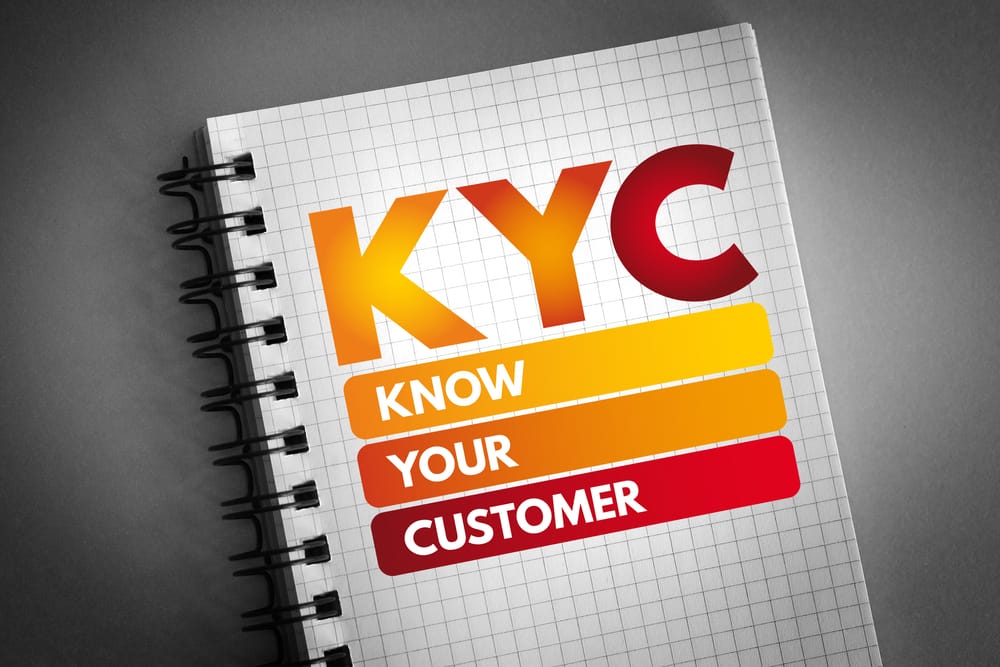Ensuring KYC Compliance: Best Practices for the Legal Industry
When we think of Know Your Customer (KYC) and AML protocols, most people tend to associate the terms (and practice) with businesses involved in the financial sector, and for good reason. Banks, digital vendors, and other forms of financial institutions are beholden to strict international regulations in order to protect against money laundering (AML), counter-terrorist financing (CTF), fraud, and other illicit activities. While financial institutions may be one of the most visible industries that utilize KYC protocols, multiple other sectors handle sensitive information that leaves clients and the public vulnerable to attack without the proper measures in place.
The legal industry is a sector that demands confidentiality and security, with due diligence (CDD and EDD) becoming essential to the protection of all involved parties. Legal enterprises face unique challenges where KYC is concerned, and with major firms running the risk of interacting with sanctioned individuals, politically exposed persons (PEPs), and other risk-prone customer profiles, knowing who you’re partnering with is crucial to preventing criminal activity within in, or through the use of, your organization.
Below, we’ll take a closer look at some of the specific details businesses in the legal industry need to stay on top of to maintain KYC best practices, mitigate risk, and maintain the integrity of their operations.
Understanding Due Diligence
Due diligence (also known as CDD or EDD) refers to processes and checks in place that help businesses and institutionsconfirm the identity of and accurately assess the related risk associated with a specific individual or organization. For law firms, in particular, due diligence is vital when it comes to identifying potential conflicts of interest, reputational risks, financial viability, problematic associations (or sanctions), unethical practices, and more.
How KYC Aids in CDD For Law Firms
KYC is a critical aspect of due diligence for law firms. KYC incorporates multiple processes/procedures designed to verify the identity and assess the suitability of clients before initiating a business relationship. KYC regulations vary across jurisdictions, but it is a near-universal standard that adequate procedures must involve collecting and verifying core information like identity documents, proof of address (business and/or personal), and funding sources. Steps involved in conducting KYC generally entail the following:
Identification and Verification
The first step to accomplish the above goals is to obtain accurate identification information from clients. This entails collecting documents like full legal name(s), DOB, nationality, passport or valid government identification cards, and other related documents that comply with relevant jurisdiction-based regulations. Once information is collected, law firms may request additional information as needed to conduct Enhanced Due Diligence (EDD) and then will conduct verification to ensure all data is authentic and reliable in order to empower a trustworthy relationship moving forward.
Source of Funding
Law firms must be able to identify the source of their client’s funds to help prevent money laundering or other financial crimes. This also helps to protect against dangerous associations and ensures non-problematic transactions going forward. Clients may be asked to provide bank statements, tax returns, or other relevant financial documents. Law firms must also assess their clients’ overall wealth and financial background, including investments, activities, and transaction volume.
Risk Assessment
Once an entity or individual’s identity and funding have been verified, law firms (and other enterprises subject to KYC mandates) conduct a risk assessment to evaluate any potential hazards to conducting business with a specific client or the risk inherent with a specific transaction. Such assessments consider a wide variety of factors, including the client’s industry, geographical location, business reputation, political exposure, and any previous legal issues.
Clients that are determined to be high risk may require more extensive investigations (via EDD or other measures) and ongoing monitoring to ensure compliance with anti-money laundering (AML) and counter-terrorism financing (CTF) regulations.
Ongoing Monitoring
Law firms, just like any other business, must be aware that KYC is an ongoing obligation to maintain efficacy. Criminal activity is rarely a “one-time” risk, and thus those utilizing verification and risk assessment protocols must commit to the routine monitoring of clients to identify any suspicious activities or changes in the client’s circumstances. Monitoring includes reviewing client information, transaction patterns, and conducting periodic reviews of client relationships. In case of any red flags or anomalies, law firms are responsible for reporting them to the relevant authorities.
Discover the iComply Advantage Today
Knowing that you have access to trusted, automated verification and security protocols is essential for legal firms and other industries governed by KYC mandates. iComply’s suite of innovative, modular-based KYC programs is designed to simplify compliance and adapt seamlessly to evolving legislation, meaning you can easily stay on top of conducting due diligence. Our software leverages cutting-edge AI and blockchain technology to ensure complete regulatory compliance across 245 jurisdictions worldwide and allows you to effortlessly construct fully automated workflows tailored to unique client types, jurisdictional requirements, and more, all with minimal disruption.
Empower your organization with a comprehensive 360º view of KYC data and set your legal firm up for success with iComply’s digital identity verification solutions today!
Ready to take the next step?
Contact us today to explore iComply’s comprehensive, modular compliance solutions or to book a demo with one of our experienced product specialists.
learn more
Is your AML compliance too expensive, time-consuming, or ineffective?
iComply enables financial services providers to reduce costs, risk, and complexity and improve staff capacity, effectiveness, and customer experience.
Request a demo today.
The Future of Identity Verification in Fintech
Explore the latest trends and technologies shaping identity verification in fintech, including biometrics, AI, and blockchain. Discover how these advancements enhance security, improve user experience, and ensure compliance.
Innovative Fintech AML Solutions: Enhancing Security and Compliance
Anti-Money Laundering (AML) solutions are essential for fintech companies to prevent financial crime and ensure regulatory compliance. This article explores innovative AML solutions that enhance security and compliance in the...
Ensuring Compliance in Fintech: Best Practices and Strategies
Compliance is a critical component for fintech companies to operate legally and ethically in a highly regulated environment. This article explores best practices and strategies for ensuring compliance in fintech. Best Practices...








